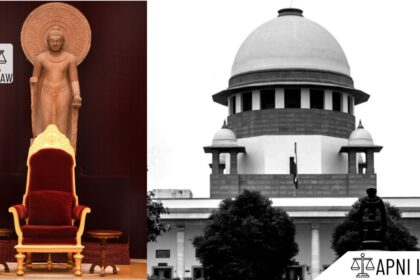Code: Section 302 BNSS
302. (1) Whenever, in the course of an inquiry, trial or proceeding under this Sanhita, it appears to a Criminal Court,—
(a) that a person confined or detained in a prison should be brought before the Court for answering to a charge of an offence, or for the purpose of any proceedings against him; or
(b) that it is necessary for the ends of justice to examine such person as a witness,
the Court may make an order requiring the officer in charge of the prison to produce such person before the Court, answering to the charge or for the purpose of such proceeding or for giving evidence.(2) Where an order under sub-section (1) is made by a Magistrate of the second class, it shall not be forwarded to, or acted upon by, the officer in charge of the prison unless it is countersigned by the Chief Judicial Magistrate, to whom such Magistrate is subordinate.
(3) Every order submitted for countersigning under sub-section (2) shall be accompanied by a statement of the facts which, in the opinion of the Magistrate, render the order necessary, and the Chief Judicial Magistrate to whom it is submitted may, after considering such statement, decline to countersign the order.
Explanation of Section 302 BNSS
Section 302 BNSS empowers a Criminal Court to direct the production and examination of a person who is confined or detained in a prison, ensuring that such individuals are brought before the Court either to answer a charge or to be examined as witnesses when necessary for the ends of justice. The key elements of this section include:
- Authority to Issue Production Orders (Sub-section 1):
- (a) The Court may order that a person detained in prison be produced to answer a charge or participate in proceedings.
- (b) The Court may also order the production of a prisoner if it is necessary to examine them as a witness to serve the interests of justice.
- Requirement for Countersigning by the Chief Judicial Magistrate (Sub-section 2):
- If a Magistrate of the second class issues such an order, it must be countersigned by the Chief Judicial Magistrate, who is the superior authority. This additional step ensures that orders from subordinate Magistrates are reviewed for necessity and appropriateness before being executed by the prison authorities.
- Submission of a Statement of Facts (Sub-section 3):
- Every order requiring countersignature must include a statement of the facts that justify the need for the order, as determined by the issuing Magistrate.
- The Chief Judicial Magistrate, after reviewing the accompanying statement, has the discretion to decline to countersign the order if the facts do not sufficiently warrant the production or examination of the prisoner.
This structured process balances the need for obtaining evidence and ensuring the presence of a prisoner with safeguarding the rights of the individual and maintaining judicial oversight.
Illustration
Example 1: Production for Answering a Charge
During a criminal trial, the Court determines that a prisoner, who is currently detained, must be brought before the Court to answer a charge of an offence. The Magistrate issues an order under Section 302(1)(a) directing the officer in charge of the prison to produce the prisoner on a specified date and time. If the order is made by a Magistrate of the second class, it is forwarded to the Chief Judicial Magistrate for countersignature along with a statement detailing the necessity for the order.
Example 2: Examination of a Prisoner as a Witness
In a case where the testimony of a detained person is essential for the discovery of the truth, the Court issues an order under Section 302(1)(b) to examine the prisoner as a witness. The order, if issued by a Magistrate of the second class, must be countersigned by the Chief Judicial Magistrate after reviewing the accompanying statement of facts. If the Chief Judicial Magistrate finds the reasons inadequate, he may decline to countersign the order, thereby preventing the unnecessary removal of the prisoner.
Common Questions and Answers on Section 302 BNSS
1. What circumstances allow the Court to issue an order for the production of a prisoner?
- Answer:
The Court may issue such an order when it appears necessary for the prisoner to be brought before the Court either to answer a charge of an offence or to be examined as a witness for the purposes of justice.
2. What additional step is required if the order is issued by a Magistrate of the second class?
- Answer:
If a Magistrate of the second class issues the order, it must be countersigned by the Chief Judicial Magistrate, ensuring an additional level of review before the order is acted upon.
3. What must accompany an order from a Magistrate of the second class?
- Answer:
Every such order must be accompanied by a statement of facts that the Magistrate believes render the order necessary. This statement helps the Chief Judicial Magistrate assess the validity and necessity of the order.
4. Can the Chief Judicial Magistrate decline to countersign an order?
- Answer:
Yes, after considering the statement of facts provided by the subordinate Magistrate, the Chief Judicial Magistrate may decline to countersign the order if he finds the reasons insufficient or if the order is not justified under the circumstances.
Conclusion
Section 302 BNSS provides a detailed framework for the production and examination of prisoners in criminal proceedings, ensuring that individuals confined or detained in prison can be brought before the Court when necessary for answering charges or for examination as witnesses. The requirement for countersignature by the Chief Judicial Magistrate, along with the submission of a statement of facts, adds an important layer of judicial oversight, safeguarding the rights of the accused while maintaining the integrity of the legal process. For more detailed legal insights and comprehensive guidance on these procedures, visit ApniLaw.








